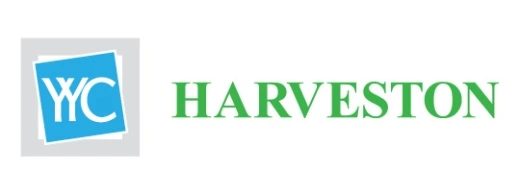This article first appeared in The Edge Malaysia Weekly, on October 31 – November 6, 2016.
HOMEGROWN advisory companies have just as much expertise as their foreign counterparts when it comes to managing the wealth of millionaires in Malaysia, says Phang Kar Yew, managing partner at YYC Harveston Wealth Advisory.
“Independent financial advisers (IFAs) like us now have access to many types of financial products, including offshore platform providers. And in many ways, we have more resources than a single label [financial services] outfit.
“Other than having an advanced regulatory structure in terms of our compliance and regulatory environment, what we have is pretty much in line with the global players. We are emulating the best experiences of the wealth management in countries in America and Europe, without going through the same risk exposure they did in 2008/09. Also, due to regulations [introduced by] Bank Negara Malaysia and the Securities Commission Malaysia, [the retail market] is also insulated from toxic assets.
However, the local wealth management scene has been slow to take off among high-net-worth individuals (HNWIs) and ultra-high-net-worth individuals (UNHWIs) due to the perception that the local wealth management industry has not kept up with the times. Phang says this perception could not be further from the truth.
“We also have a good foundation being laid by agencies such as the Malaysian Financial Planning Council and the Financial Planning Association of Malaysia that work closely with the Association of Financial Advisors Malaysia to produce professional advisers and planners.
“If you were to compare our expertise with that of the Swiss banks and international private banks, our advisory is just as good at theirs. The only difference between us — the IFAs — and them is that private banks are operating on a larger scale and have [historical] credibility. But, at the end of the day, they are just producing [financial] products and selling them. So one must ask how independent they are,” he says.
Local wealth advisory companies also have an edge over Singaporean companies, which many locals tend to flock to.
“[While many local clients head to Singapore], in comparison with Singapore, their companies have the edge over us in terms of experience in wealth management. However, due to their regulations, they operate within a liberalised market, [and that could be a disadvantage] as their clients would be exposed to toxic assets, unlike us,” says Phang.
He specialises in investment management and distribution and is a regular speaker at public seminars on financial planning. Among the roles he has held are corporate banking manager at ABN-AMRO Bank Bhd and vice-president of external relations and publicity for the Malaysian Financial Planning Council’s National Council.
It has been widely reported that the number of millionaires in Malaysia has grown exponentially. Despite that, the asset management penetration continues to lag behind. BCG Perspectives’ 14th annual benchmark report, Global Asset Management 2016: Doubling Down on Data, released on July 11, highlights that global assets under management (AUM) have stalled at US$71.4 trillion last year, while AUM in Asia recorded 10% growth. However, AUM growth in Asia still trails behind the rapid growth of the region’s private wealth.
Phang says the report indicates that asset management’s penetration of the wealth market in Asia continues to lag behind compared with other parts of the world, thus restraining the industry in the region that is setting the global pace of private wealth expansion.
Derick Tan, group CEO of Harveston Financial Group, adds that based on this report, it is possible to conclude that Asian HNWIs do not trust local or emerging Asian market wealth management companies.
“They would rather engage wealth management companies from the West (those based in America or Europe, or those Western-based wealth management companies with satellite offices in Asia). But the fact is that homegrown ones have the same capability and expertise as the Western wealth management companies,” says Tan.
He is a registered financial planner, chartered financial practitioner and chartered life practitioner with over 23 years’ experience in corporate wealth management services with a particular focus on small and medium enterprises (SMEs). He is also the current vice-president of the Association of Financial Advisers Malaysia.
Yap Shin Siang, group CEO of YYC Advisors, an audit and accountancy firm, says that as the number of affluent Malaysians has grown, so have their wealth management needs.
“[As separate entities], YYC Advisors and Harveston Financial Group have often been approached for advisory services that go beyond our business scope. Clients not only had to go from one service provider to another to manage their various financial needs, they also had to carefully research which providers were the best in their respective fields before approaching them. This can take a lot of time and effort.
“Through YYC Harveston, we are able to continue providing excellent solutions to help clients protect their assets and achieve their financial objectives. YYC Harveston eliminates these issues by offering a holistic service covering all areas in Malaysia. More importantly, clients can also be assured of the quality and efficacy of our services as we are each highly experienced in what we do,” says Yap who has over 10 years of experience in accountancy and audit.
These two companies decided to team up to create YYC Harveston Wealth Advisory Sdn Bhd, a full-service, integrated business and personal wealth management service with audit advisory capabilities. They now have a pool of clients totalling more than 7,000 SMEs.
Range of services
Harveston and YYC decided to enter into a joint venture because they share common values, says Phang.
“Both YYC and Harveston got to know each other in 2014, in one of Malaysia’s trade and branding associations. Within these two years, we came to understand each other’s strengths and business models well [as well as our track records in helping SMEs]. Because of our same values, we are able to work well with each other,” he says.
Tan adds that this new joint venture will allow both YYC and Harveston to provide better service and benefits, particularly to SME clients in Malaysia. They have plans to move forward through continuous expansion of their practice in the near future. YYC Harveston provides fee-based advisory services, with the charges depending on the job scope.
Its comprehensive list of services includes accounting, audit, tax, and Goods and Services Tax advisory; management consultation — pre-initial public offering (IPO) planning, business valuation, review and restructuring and succession planning; as well as wealth management advisory such as enterprise risk management — asset protection, estate review and planning and offshore preservation.
“If it is a statutory service, our fee is a percentage of the turnover. For investment advisory, our fee is a percentage of the assets under management. When it comes to setting up charges, there are recurring fees and we also take commissions from the financial product providers. In terms of business auditing, we, of course, charge a fee,” says Phang.
He says all of Harveston’s wealth advisory services are tailored to its clients’ needs. “From the business owner aspect, we have to look at the operating cash flow of the company itself, how good the company is, how viable the business is (moving forward) in terms of funding, resources allocation, whether all of these have been well taken care of.
“Many a time, too much focus is on the business and nothing on taking care of themselves. [SME owners] are wearing a lot of hats — shareholder, general manager and even director. These owners (for themselves) don’t contribute to the Employees Provident Fund or have retirement benefits, employee benefits or medical plans.
“They are very business-focused as they want to move their business to a better stage as soon as they can. But as the business grows, [they] forget that [they] can be taking on too much risk,” Phang says.
According to Phang, business evolution is divided into three phases. First is to establish, second is to expand and go for listing. The third is to mature and stabilise the SME business. However, Phang cautions that the riskiest stage is the second phase.
“Most likely, in the second phase of the business [expansion], you are exposed to business risk and financing risk. Many SMEs lost everything overnight in the 1997/98 Asian financial crisis. Their families were then dragged into the mess and became bankrupt overnight.
“Later, when their companies arrive at the IPO stage of their business, many will rush the process as they just want to cash out their listing. They will pass down liabilities instead of assets to the next generation. This is a short-term goal, with zero wealth hand downs. So how do we build a firewall against these crises? By helping them to hedge their business risk and personal and family risks.”
He adds that many business owners or SME owners (in Malaysia) may not have a long term-plan, only a short-term objective.
“They even may not have a clear plan for how to go for listing. So, we put in place structures and processes that will eventually give them an idea of where they are heading and how they will achieve their objective [in terms of wealth management] in the context of a family office. When they appoint people like us, [we will help them to] look into personal and family wealth, besides looking at their own company’s wealth,” he says.
In the current uncertain economic environment, Phang says their strategy is to practice active investing and invest according to the economic cycle.
“Our process is straightforward. First, we assess our clients’ portfolio and their risks. Then we come up with a customised portfolio and invest in a variety of funds, which could be fixed income or equities, that suit their short and long-term financial goals.
“The economy is cyclical, hence, what we do is to identify which cycle we are in currently and invest accordingly. [But usually] for our clients, we invest for short-term income and long-term growth, with a heavy emphasis on a diversified portfolio.
“Our current focus is on high dividend earning funds, real estate investment trusts (REITs), fixed income, sukuk — all safe haven investments, and in foreign currencies such as the US dollar.
“In terms of investing in the current economic climate, we are cautiously optimistic that in the second quarter of 2017, businesses will perform well. The equity market will recover, especially when it comes to emerging and developing markets,” says Phang.



 Beware of Scam and Impersonation Using Our Company Name – Harveston Capital
Beware of Scam and Impersonation Using Our Company Name – Harveston Capital